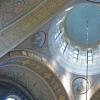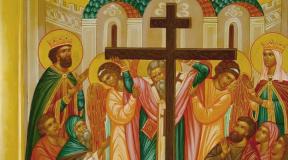Hashem is not looking at your appearance. The mystery of the human soul in hadith
عَنْ أَبِى هُرَيْرَةَ قَالَ: قَالَ رَسُولُ اللَّهِ -صلى الله عليه وسلم:
« إِنَّ اللَّهَ لاَ يَنْظُرُ إِلَى صُوَرِكُمْ وَأَمْوَالِكُمْ وَلَكِنْ يَنْظُرُ إِلَى قُلُوبِكُمْ وَأَعْمَالِكُمْ »
رواه أحمد (2/284 و 539) ، ومسلم (2564) ، وابن ماجه (4143).
قال الشيخ الألباني في "صحيح الجامع الصغير" 1862: صحيح
قال الشيخ الألباني في "صحيح الترغيب والترهيب" 15: صحيح
قال الشيخ الألباني في "غاية المرام في تخريج أحاديث الحلال والحرام للقرضاوي" 415: صحيح
It is reported that Abu Hurayrah (may Allah be pleased with him) said:
"The Messenger of Allah (peace and blessings of Allah be upon him) said:" Indeed, Allah does not look at your appearance or your property, but He looks at your hearts and your deeds. "
This hadith was narrated by Ahmad 2/284, 539, Muslim 2564 and Ibn Majah 4143. The hadith is authentic. See Sahih al-targib wa-t-tarhib 15, Sahih al-jami 'as-sagyir 1862.
______________________________
Many people diligently take care of their appearancewanting to look their best, prettier and tidier. However, they do not cleanse their hearts from diseases that Allah Almighty warned us against, such as hypocrisy, lies, envy, arrogance, bragging, self-righteousness, injustice in all its manifestations, ignorance, anger towards believers, forbidden vile passions and desires, etc. ... But after all, Allah Almighty has shown us that the best attire is fear of God, and that adornment of ourselves with piety is better than simply adorning ourselves with worldly clothing.
Almighty and Great Allah said:
﴾ يَا بَنِي آدَمَ قَدْ أَنزَلْنَا عَلَيْكُمْ لِبَاسًا يُوَارِي سَوْآتِكُمْ وَرِيشًا وَلِبَاسُ التَّقْوَى ذَلِكَ خَيْرٌ ﴿
“O sons of Adam! We have sent you a garment that covers your nakedness and jewelry.However, a robe for fear of God is better. " (al-A'raf, 7:26).
And the Prophet (peace and blessings of Allah be upon him) said: "Indeed, Allah does not look at your appearance and property, but looks at your hearts and deeds."
Abu Hamid al-Ghazali (may Allah have mercy on him) said: “This hadith clarified that the heart is the place where the gaze of the Lord is directed. And how amazing is the one who cares about his face, where the gaze of creations turn, washes his face, cleans it and decorates it in all possible ways so that people do not notice any defect on it. But he does not care about his heart - the place where the Creator's gaze is turned, does not cleanse it (from vices) and does not decorate it (with excellent features) so that the Lord does not see dirt and other defects in it. See Muhammad ibn ‘Abdul-Wahhab. Al-Kabair, p. 28. Vizaratu al-Shuun al-Islyamiyya KSA.
We should not evaluate faith by its outward manifestations, we should not be deceived by the righteous deeds of people, just as the evil deeds of a Muslim should not make us despise him.
An outstanding interpreter of the Qur'an, Muhammad al-Qurtubi (may Allah have mercy on him) said: “This is a great hadith, which indicates that it is impossible to give someone an unambiguous assessment based only on outward signs of righteousness or wickedness. Since it may be that a person treats external affairs with care, but Allah knows a bad quality in his heart, due to which these affairs are not accepted. And vice versa, maybe we see how a person is careless about his duties or disobeys Allah, but Allah knows a wonderful quality in his heart, because of which he will forgive him. Acts are signs based on speculation, not solid and conclusive evidence. It follows from this that one should not allow exaggeration in praising a person behind whom we see righteous deeds. And also that we should not be contemptuous of a Muslim, whom we have noticed bad deeds. It is necessary to despise and condemn the act itself and the bad state itself, but not the person who commits this act. Think about it, for (in this matter) it is a subtle look! " See Muhammad al-Qurtubi. Al-Jami 'li ahkam al-Quran, 16/326. Dar al-Qutub al-Misriya. 1384 AH Second edition.
عَنْ أَبِى هُرَيْرَةَ قَالَ: قَالَ رَسُولُ اللَّهِ -صلى الله عليه وسلم:
« إِنَّ اللَّهَ لاَ يَنْظُرُ إِلَى صُوَرِكُمْ وَأَمْوَالِكُمْ وَلَكِنْ يَنْظُرُ إِلَى قُلُوبِكُمْ وَأَعْمَالِكُمْ »
رواه أحمد (2/284 و 539) ، ومسلم (2564) ، وابن ماجه (4143).
قال الشيخ الألباني في "صحيح الجامع الصغير" 1862: صحيح
قال الشيخ الألباني في "صحيح الترغيب والترهيب" 15: صحيح
قال الشيخ الألباني في "غاية المرام في تخريج أحاديث الحلال والحرام للقرضاوي" 415: صحيح
It is reported that Abu Hurayrah (may Allah be pleased with him) said:
"The Messenger of Allah (peace and blessings of Allah be upon him) said:" Indeed, Allah does not look at your appearance or your property, but He looks at your hearts and your deeds. "
This hadith was narrated by Ahmad 2/284, 539, Muslim 2564 and Ibn Majah 4143. The hadith is authentic. See Sahih al-targib wa-t-tarhib 15, Sahih al-jami 'as-sagyir 1862.
______________________________
Many people diligently take care of their appearance, wanting to look their best, prettier and tidier. However, they do not cleanse their hearts from diseases that Allah Almighty warned us against, such as hypocrisy, lies, envy, arrogance, bragging, self-righteousness, injustice in all its manifestations, ignorance, malice towards believers, forbidden vile passions and desires, etc. ... But after all, Allah Almighty has shown us that the best attire is fear of God, and that adornment of ourselves with piety is better than simply adorning ourselves with worldly clothing.
Almighty and Great Allah said:
﴾ يَا بَنِي آدَمَ قَدْ أَنزَلْنَا عَلَيْكُمْ لِبَاسًا يُوَارِي سَوْآتِكُمْ وَرِيشًا وَلِبَاسُ التَّقْوَى ذَلِكَ خَيْرٌ ﴿
“O sons of Adam! We have sent you a garment that covers your nakedness and jewelry.However, a robe for fear of God is better. " (al-A'raf, 7:26).
And the Prophet (peace and blessings of Allah be upon him) said: "Indeed, Allah does not look at your appearance and property, but looks at your hearts and deeds."
Abu Hamid al-Ghazali (may Allah have mercy on him) said: “This hadith clarified that the heart is the place where the gaze of the Lord is directed. And how amazing is the one who cares about his face, where the gaze of creations turn, washes his face, cleans it and decorates it in all possible ways so that people do not notice any defect on it. But he does not care about his heart - the place where the Creator's gaze is turned, does not cleanse it (from vices) and does not decorate it (with excellent features) so that the Lord does not see dirt and other defects in it. See Muhammad ibn ‘Abdul-Wahhab. Al-Kabair, p. 28. Vizaratu al-Shuun al-Islyamiyya KSA.
We should not evaluate faith by its outward manifestations, we should not be deceived by the righteous deeds of people, just as the evil deeds of a Muslim should not make us despise him.
An outstanding interpreter of the Qur'an, Muhammad al-Qurtubi (may Allah have mercy on him) said: “This is a great hadith, which indicates that it is impossible to give someone an unambiguous assessment based only on outward signs of righteousness or wickedness. Since it may be that a person treats external affairs with care, but Allah knows a bad quality in his heart, due to which these affairs are not accepted. And vice versa, maybe we see how a person is careless about his duties or disobeys Allah, but Allah knows a wonderful quality in his heart, because of which he will forgive him. Acts are signs based on speculation, not solid and conclusive evidence. It follows from this that one should not allow exaggeration in praising a person behind whom we see righteous deeds. And also that we should not be contemptuous of a Muslim, whom we have noticed bad deeds. It is necessary to despise and condemn the act itself and the bad state itself, but not the person who commits this act. Think about it, for (in this matter) it is a subtle look! " See Muhammad al-Qurtubi. Al-Jami 'li ahkam al-Quran, 16/326. Dar al-Qutub al-Misriya. 1384 AH Second edition.
Repentance is the foundation of all good conditions and high degrees. This is the first step in getting closer to Allah. Tawbu is like the land set aside for the construction of a building. Without it, a person does not rise in the degree, does not acquire a good condition, just as construction is impossible without a land plot.
Repentance (tawbu) is a return from condemned moral qualities to good, praised qualities. The one who left the disobedience of the Almighty, fearing His punishment, the one who left the sinful, ashamed to disobey Allah, who always looks at the slave, and the one who left the sinful, magnifying the power of Allah - they are all repentant.
Each servant of Allah is obliged to immediately perform tawba, observing its conditions and rules, so as not to fall under the wrath and hatred of the Almighty, as well as get rid of the tormenting fire of Hell and achieve salvation from eternal destruction, get infinite happiness and approach the gates of the Almighty and His mercy, receive the contentment of Allah, His Paradise and help in obeying Him and in accepting their deeds. Many types of worship are desirable (sunnah), and tawbu is required (farz). As you know, without performing the obligatory, the desirable is not accepted. The proof that tawbu is a farz are the verses of the Qur'an and the hadiths of the Prophet (peace and blessings of Allaah be upon him).
The sincere tawbu (tawbatu-n-dry), which the Qur'an calls for, is a kind of repentance that is done sincerely (secretly and openly) and with the intention not to return to sins. The repentant only explicitly (i.e. in words) is like a dung heap covered with beautiful brocade, which people look at and admire its beauty. But when the coverlet is removed, everyone turns away from her. Likewise, all people look with admiration at a person who performs good deeds for show, and when the veils are removed on the Day of Judgment, all the angels will turn away from him. On this occasion, the Prophet Muhammad (peace and blessings be upon him) said: “ Indeed, Allah does not look at your appearance and at your wealth, but looks at your soul (heart)».
The dignity of tawbu is also indicated by the verse of the Qur'an, which says that Allah loves pure and repentant people. And when He loves them, who have approached Allah thanks to their good deeds, He will not want anyone to see their shortcomings, and will hide them from people.
Allah's generosity towards His slaves is that when they commit a sin, then repent, then commit sin again and repent again, Allah accepts their tawba. Of course, repentance must be sincere. When Iblis was given a reprieve until Doomsday, he swore that he would not leave the soul of a person, misleading him while he was alive, and Allah also swore that He would accept the repentance of His slaves until their soul leaves the body. Iblis said: "I will approach them from the front, from behind, to the left, to the right." Hearing this, the angels sympathized with the people. And then Allah, through revelation (wahya), conveyed to them (the angels) that people were left with two sides, and they can turn with their prayers upward (when reading the dua prayer) and down (when making an earthly bow): “When they humbly raise their hands making dua, or just as humbly touching the ground with their foreheads, I will forgive them without looking back. "
The Prophet (peace and blessings be upon him) said: “Allah Almighty stretches out His“ hand ”(facilitates and accepts repentance) at night, so that those who have committed sins during the day will repent, and extends His“ hand ”during the day to repent of those who have committed sins at night, until the sun will not rise from the west. " After that, the faith of the unbeliever and the Tawbu believer will not be accepted. This is also stated in the Quran.
An authentic hadith narrated from al-Bayhaqi and at-Tirmidhi says: “ On the western side there is a gate, 40 or 70 years' walk wide, which Allah opened for the tawba on the day the earth and heaven were created. And they won't close until the sun rises from this side».
Al-Bukhari and Muslim also narrated the hadith: “ When a slave commits a sin and sincerely says, “O my Lord, forgive me, I have sinned", Allah will say:" My slave learned that he has a Forgiving and Helping Lord. So I forgive him". Then after a while he will repeat the same thing again: “ Oh Allah, I have sinned again", And Allah forgives him again, no matter how many times he repeats it". That is, as long as he sincerely repenting, ask for forgiveness, Allah will forgive him. This does not mean that if a slave verbally repents and continues to sin, then Allah forgives him these sins. This is a tawbu of liars that is not accepted.
The Prophet (peace and blessings of Allaah be upon him) said: “ Allah accepts the tawba of a slave until his soul reaches his throat, since then he will clearly understand what will happen to him, whether he will receive mercy or a terrible misfortune will overtake him. Then the tawbu will not help him, and Allah will not accept the faith of the disbeliever (kafir). Because a prerequisite for repentance is the decision of the heart to leave and not repeat the sinful, and this is accepted only when he has the opportunity to commit sin. In his dying state, he still can no longer commit sinful ”.
The Prophet (peace and blessings be upon him) said: “If you do this a large number of sins that they will reach heaven, and then you will regret it, then you will be forgiven. " This authentic hadith transmitted by at-Tabarani and al-Bayhaqi. It is known that the Prophet (peace and blessings of Allah be upon him) said: “The repentant is the favorite of Allah. The one who has done tavba is like the sinless one. "
Abu Naim (may Allah be pleased with him) narrates the hadith of the Prophet (peace and blessings of Allaah be upon him): "Indeed, good deeds eliminate bad deeds, just as water washes away dirt." The Tabiins said: "There is no voice more beloved for Allah than the voice of a sinful slave who repents of his sins, saying:" O my Lord. " And the Lord answers him: “I am listening to you, My slave, ask what you want. You are on a par with some angels, I am on the right, left and above, and closer to you than your own heart. You testify, angels, I have forgiven him all his sins. "
Ibnu Abbas (may Allah be pleased with him) says that the Prophet (peace and blessings be upon him) said: “ When a slave turns to Allah with repentance, Allah accepts his repentance and makes the angel, who writes down his deeds, and the human organs to forget about his sin, so that they do not testify on the Day of Judgment before Allah about the committed sin. Also, all the witnesses on earth and in heaven forget about this, no one and nothing can testify about this committed sin on the Day of Judgment. ».
In a hadith narrated from Ibnu Abbas (may Allah be pleased with him), it is said: “To the Prophet (peace and blessings be upon him) came polytheists (mushrikins) who committed sins, murders and adultery, and told him:“ The religion of Islam, to which you call, beautiful, if you tell us how you can atone for our sins. " And then an ayah was revealed, which said that all these sins are forgiven to those who believe in Allah, sincerely committed tawba and will subsequently perform good deeds. "
Another verse says that one should not lose hope and the mercy of Allah. Therefore, we must repent and hope in Allah that He will accept our tawba and forgive us.
The famous Alim Makkhul said: “When the secret of all lands and heavens was revealed to the prophet Ibrahim (peace be upon him), he saw a man committing adultery (zina). He read the dua and asked to punish him, and he was destroyed by Allah. Then the prophet (peace be upon him) saw a stealing slave and also read the dua, and Allah also destroyed him. Then he saw a slave committing another sin, and when Ibrahim (peace be upon him) was about to read the dua again, Allah turned to him: “O Ibrahim, you leave My slaves, truly, My slave has a choice:
1. He will make tawba, and I will forgive him.
2. Good offspring will be left of him, and they will sincerely perform worship.
3. He will die as an unbeliever, and then Hell is prepared for him. "
I am writing to you as I need help. Please, tell me, what should a person do if his appearance, so to speak, is not very beautiful, and there are flaws in it? This is my problem: people judge by my appearance, they talk about my external flaws, but they do not know what is inside me. Is it possible that if a person is ugly, then he is unhappy? If a person is not handsome, is it his fault and can this be considered a punishment of Allah Almighty?
When others say about me that I am ugly, ugly, I feel hurt, I begin to hate myself and ask myself: why did Allah Almighty create me like this ... why?
Religiously:
Unfortunately, this is the case, including among Muslims. Muslims should not pay attention to their appearance, one of the hadiths of the Messenger of Allah (peace and blessings be upon him) says about this: "Indeed, Allah does not look at your appearance and material condition, but He looks at your hearts and deeds." (Sahihu-Muslim 4651).
إِنَّ اللَّهَ لَا يَنْظُرُ إِلَى صُوَرِكُمْ وَأَمْوَالِكُمْ وَلَكِنْ يَنْظُرُ إِلَى قُلُوبِكُمْ وَأَعْمَالِكُمْ
This hadith unambiguously makes it clear that the main thing that we should pay attention to is piety and piety, since it is to them that the Almighty Himself pays attention (!), But not at all to a beautiful appearance! The Almighty in the Quran says (meaning): "The Most Revered of You, the Most God-fearing" (Surah "Al-Hujurat", 13).
إِنَّ أَكْرَمَكُمْ عِنْدَ اللَّهِ أَتْقَاكُمْ
Ugly appearance is a test from the Almighty; try to pass this test with dignity, and then the Almighty will fully repay you. Make friends with observant Muslims, they do not attach the same importance to appearance as others. For every demeaning, haughty look, you will be rewarded by the Almighty, not to mention slander behind your back! In addition, you can do a little work on your appearance: do your hair, choose clothes that hide your flaws, etc.
From the point of view of psychology:
We are often contacted with a similar problem. It's not all that simple, and much needs clarification. It is important to understand that the concept of a beautiful and ugly appearance is very relative and subjective. No wonder they say that there are no comrades in taste and color. Often, girls who have a fear that they will never marry and will be alone all their lives turn to such a problem. It is important to know that a person who considers himself ugly creates problems for himself out of nothing. Namely, in communication, he experiences complexes, demonstrates his irritability and insecurity. Naturally, such manifestations of character push people away from him, and he, in turn, is mistakenly convinced that the whole thing is in his appearance. A vicious vicious circle arises. There is a proven way out of this circle - self-development, enrichment of one's inner culture. Many dream to find good man, and only a few think about the fact that you yourself need to become an interesting and positive person, and then let others look for you.
On the other hand, an ugly appearance (which is again controversial) serves as a kind of test for those around you: narrow-minded people will simply move away from you. Many beautiful people have problems in the fact that they are paid attention to and want to communicate with them only because they are beautiful in appearance, and they are offended that others do not want to see a person in them, but just a beautiful application.
The question was answered:
Muhammad-Amin Magomedrasulov
theologian
Aliaskhab Anatolyevich Murzaev
consultant psychologist at the Center for Social Assistance to Families and Children
The essence of the soul is one of the secrets of the Supreme
The human soul is an immense world full of mystery. Man is of particular value, since he is endowed not only with a perishable physical body, but also with an eternal soul. The soul is the essence of a person, as it determines what he is in the eyes of Allah.
The hadith says: "Allah Almighty looks not at your appearance and condition, but at your hearts and actions.".
A person wants to comprehend and know the secret of his soul: what is it for, where is it from and what is the meaning of its existence. How the Qur'an and Sunnah of the Messenger (peace be upon him) answer this question:
In the Qur'an, Allah Almighty says that a person will never know the secret of the soul, since it is the secret of Allah:
They ask you about the soul. Say: “The essence of the soul is one of the secrets of the Most High that only He knows about. And your knowledge is insignificant in comparison with His knowledge ”[Quran, 17:85].
The soul is a sacrament, and it takes on a body even when the child is in the womb: “For each of you, all the components of your creation gather together in your mother’s womb by day 40. During this period, it is like a blood clot, and then after the same period - a chewed piece. After that, an angel is sent to him, who breathes his soul into him. He was given four instructions: write down his lot, time, deeds and whether he will be unhappy or happy. "
The soul is a sacrament, but the believer must strive to know it, to know himself, his weaknesses and strengths... The whole life of a person in this world is the upbringing and improvement of his inner life. A person will not carry anything with him into the other world except his soul, and it is for him that he will be held accountable before the Lord.
The Prophet (peace be upon him) said: "The most aware of you about yourself (or about your soul - nafs) is the most aware of your Lord."
The Messenger of Allah (peace be upon him) called for the purification of the soul and warned about the importance of keeping one's soul righteous: “Indeed, there is a piece of flesh in the human body, which, being good, makes the whole body good, and when unfit, makes the whole body worthless and this piece is the heart. "
A person gains faith when he lets Allah into his soul, reveals his soul to Allah, realizes that the soul is His creation and it will return to Him. The soul finds peace only from the realization of its true purpose. The hadith says: "There is no slave who would rush to Allah with his heart, so that Allah would not direct the hearts of believers to him." The soul that cognized Allah, also cognized the essence of its existence, established the framework of the forbidden and permitted.
“In order to learn what righteousness is, turn to your heart. Righteousness is something that does not bother the soul and heart, and sin is something that moves unkindly in the soul and rushes heavily in the chest. "
The soul of the believer is valuable to the Almighty. Allah will certainly bestow his blessings on him. The hadith says about the soul of the believer: “The heart of the believer is open; there is a shining lamp in it. The heart of the unbeliever (kafir) is black, overturned. "
"If a slave retires with his Master in a dark night and starts talking to Him, Allah will light a light in his heart."
"There is no slave who, for forty days, would devote his deeds sincerely to Allah alone, so that Allah would not force the sources of wisdom to be beaten from his heart to his tongue."
“Allah Almighty says:“ I will be what My servant thinks Me, and I am with him when he remembers Me. If he remembers Me in his soul, then I will remember him in My soul, and if he remembers Me in the company (of other people), then I will remember him among those who are better than them. If a slave approaches Me an inch, I will approach him on an elbow, if He approaches Me on an elbow, I will approach him a fathom, and if he walks toward Me, I will rush to him at a run! "



















